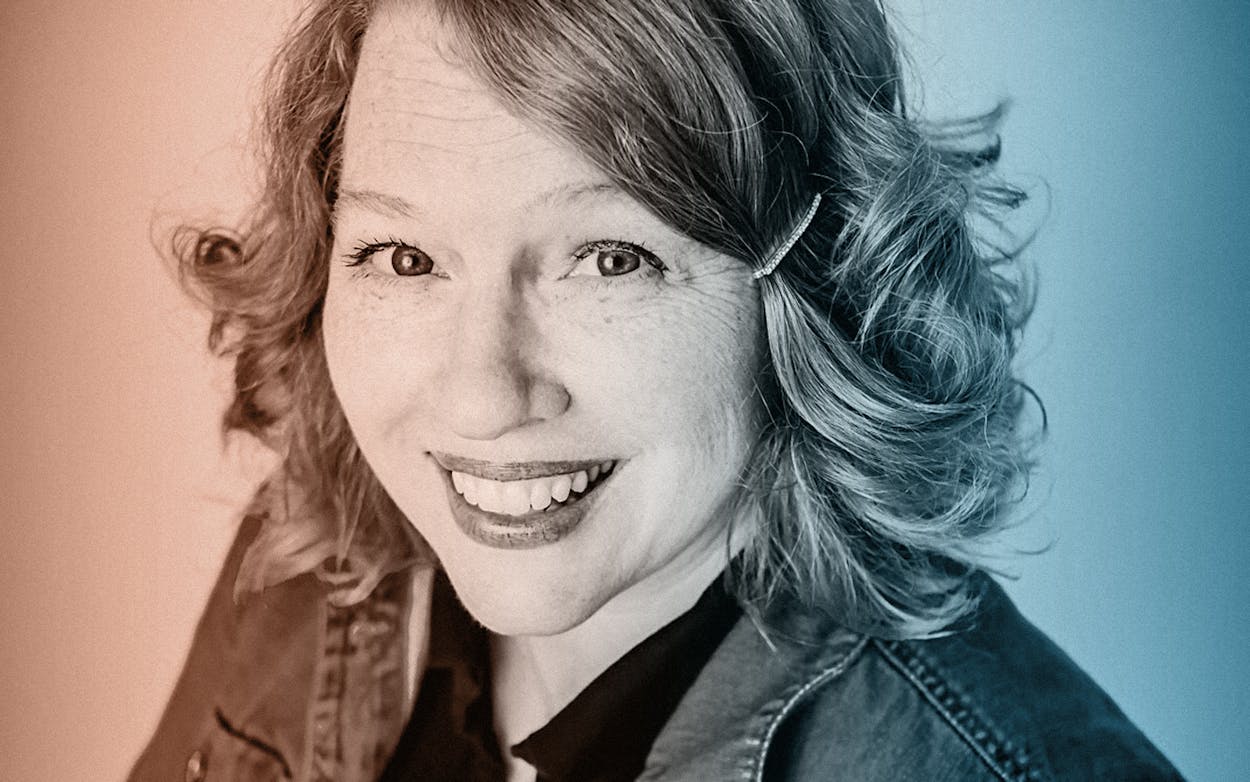Subscribe
The just-released seventh novel by Houston’s Katherine Center, Things You Save in a Fire, has racked up spots on lists of the most buzzed about books of the summer—from the Washington Post to the Hollywood Reporter, USA Today to Good Housekeeping. The story follows a former Austin firefighter to Boston, where she’s called upon to care for her ailing mother and winds up facing hazing, discrimination, and mortal danger while falling into forbidden love with another firefighter. Center’s conversational tone and ability to balance wit and suspense—in what the Dallas Morning News calls “a soul-nourishing” manner—has become her calling card. During our discussion, she dissected that carefully curated tone, detailed her recent TEDx talk on empathy, and explained how a group of Houston firefighters helped her make Things You Save in a Fire authentic.
Three takeaways from her appearance on the National Podcast of Texas:
1. Center’s 2018 TEDx Talk, “We Need to Teach Boys to Read Stories About Girls,” is focused on a theory that if men read more fiction told from a female view it could help close the gender divide.
“I feel that our culture has a bit of an empathy problem. And I think it’s hard for all of us, women included, to put ourselves in women’s shoes. And I think one of the ways that we learn how to have empathy for other people is through storytelling. When a storyteller does a good job of telling the story, you’re not just sort of walking through the story next to the main character, you’re embodying them. But statistically we’re much more likely to write a male point of view character than we are to write a female one. And my theory is that empathy and that ability to sort of put yourself in another person’s place is a learned skill. I think it’s something you have to practice. And I think our culture doesn’t ask guys to do it as much as it asks women to do it. I mean, women imagine what it’s like to be guys all the time. We are constantly putting ourselves in the shoes of main characters who are male, and we are rooting for them. You know, we want them to get whatever it is they want, even if it’s the girl, you know? And it’s not—it doesn’t threaten our identities to do that, as it doesn’t change who we are. It just makes us better at imagining who other people are.”
2. Center uses comedy in books where tragic things happen to her characters because she believes a mixture of comedy and tragedy paves a path to hopefulness.
“Comedy is my coping mechanism for all the darkness in the world. Comedy and tragedy live shoulder to shoulder. I think we invented comedy because of tragedy, right? Like squirrels don’t need comedy because they don’t know they’re going to get run over. But we know we’re all going to die. And that’s dark. And it’s a truth that everybody has to struggle with in some way or another. So I’m trying to accept all the darkness in the world and then also find ways to savor whatever light comes through.”
3. As an act of therapeutic self-care, Center tries to keep the demands of the book business and the actual process of writing as separate as possible.
“Publishing is complicated. There are lots of disappointments and humiliations that can be traumatizing. But the actual writing is always very blissful for me. I mean it feels a lot like being in love. I’m surrounded by these imaginary people in my head who are talking and saying funny things and doing nasty stuff. And I like to be around them. There’s a reason that I don’t write books about serial killers, and there’s a reason I don’t write books that are super angry at the world. I could write those books, but I’m in a process in my life of trying to look for joy. I’m not very good at finding joy. I’m very good at ignoring it and just moving on and focusing on all the problems and the things that need to be solved. So I’m trying to write books that savor the good things in life, the things that I tend to ignore. So I try to protect writing as a happy place because that’s a source of joy for me that I don’t want to give up.”






